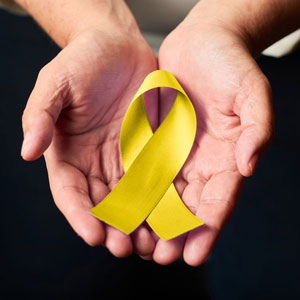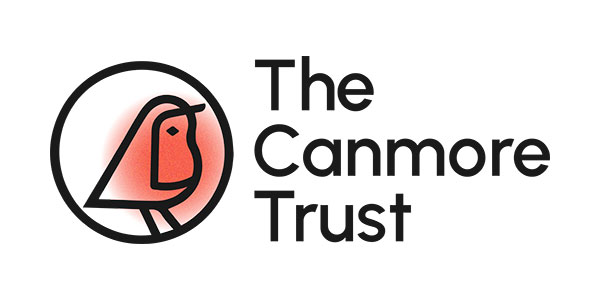Our prioritiesPriority three: Safety & Support
The well-being and safety of our community is paramount. Our plan prioritises work to ensure those affected by suicidal thoughts and/or behaviours, or are affected by the loss of someone to suicide, have compassionate support available to them when they need it.
We will develop opportunities to restrict access to means and ensure safe spaces for anyone in crisis.

Safety
3.1. Improve our community’s understanding of suicide risk and ability to respond confidently, appropriately, and with compassion to people who may be suicidal or affected by suicide.
3.2. Develop physical safe spaces that staff and students can access if they're in crisis.
3.3. Restricting access to means will be routinely considered as part of building design, procurement processes, refurbishments and estate planning.
3.4. Routine safety, security, building and estate reviews will continue to take place to ensure our campus is as safe as possible.
3.5. Online safety: real-time monitoring of social media will take place where possible in circumstances where there has been a suicide, to address issues around clusters and suicide contagion.
3.6. Responsible communication and reporting will be in line with the Samaritans’ media guidelines on how to respond to a suicide.
3.7. Monitoring of CCTV and increasing staffing and foot patrols will take place around any high-risk locations. Report any locations of concern to Glasgow City Suicide Prevention partnership group.
3.8. Signage and information around support will be carefully placed and will signpost to sources of help.
3.9 Delivery of suicide contagion training as appropriate to those who are most likely to be involved in a postvention response.
3.10 Suicide prevention will be considered in full campus risk assessment processes (this includes off-field locations, students’ union, sports facilities) and the storing and access to chemicals and equipment.
Spotlight: Restricting access to means
Restricting access to means is one of the most successful approaches to reducing suicide rates and attempts. Ease of access to lethal means can influence the outcome of a suicide attempt, which means that managing both physical and cognitive access to suicide is a priority.
Through our Suicide Safer Project Board, we've established a specific ‘restricting access to means’ working group which involves senior members of Estates, Corporate Communications, and Safety, Wellbeing and Resilience. Members of this group will work on the objectives set out in the safety section and will involve the project board and wider University as required.
Support & intervention
3.11. All staff and students who present with suicidal thoughts or behaviours will receive timely and compassionate support.
3.12. Our Helping Students in Distress Guide will be updated every year. This guide focuses on appropriate signposting and referral pathways. Helping Students in Distress training will also be available to all student-facing staff.
3.13. A Helping Staff in Distress Guide will be developed in partnership with Human Resources and the Workplace Wellbeing Manager. This will be available to every staff member within the University.
3.14. Ensure that referral pathways to external organisations are communicated effectively to staff and students. Particularly, we will ensure staff in supporting roles are aware of the help that can be accessed via NHS 24’s mental health hub, compassionate distress response service, and across mental health services, primary care and the third sector.
3.15. Strengthen partnerships with GP practices, local mental health services and the third sector.
3.16. Follow up with students, staff and services after incidents to make sure the right support is in place for individuals.
3.17. Ensure all staff and students in the University or private PBSA have information on available student support in a range of formats.
3.18. The Early Intervention Counsellors within Disability and Wellbeing will aim to meet with students within 24 hours of referring to the service and refer them to the most appropriate support.
3.19. The Early Intervention Team will provide emergency slots to assess students who are at greatest risk of self-harm and offer intervention to those students.
3.20. Improve our communities’ understanding of the dangers of harmful behaviours, such as Gender Based Violence and how this can lead to impulsive actions and feelings of entrapment.
Spotlight: Lived & living experience & peer support
Responding appropriately to suicide is a vital element of suicide prevention. We know that those bereaved by suicide are at a higher risk of future suicide and have put measures in place to support any members of our community who have been impacted by suicide.
The Canmore Trust
My name is John Gibson, and I am the CEO of The Canmore Trust (SC051511).

The Canmore Trust charity was founded in 2022, after our son, Cameron, died by suicide in 2019. He was 24 years old and a young veterinary surgeon, just a few months out of university.
Cameron had no obvious psychological distress and left no note. He had always wanted to be a vet and was doing his “dream job”. He had a great circle of friends and loved the great outdoors of Scotland – hillwalking, kayaking, running and cycling.
Cameron’s death is a mystery. However, what is not a mystery is the carnage which we, as a family, have experienced and, indeed, live with every day since. I wish I could show you the reality of the pain left behind by a suicide death – the utter desolation created by two police officers coming to our door to tell us that our beloved son was dead and that he had taken his own life.
As a charity, we would do anything to stop any further deaths by suicide. We CAN do more and we MUST do more. That is why I am very excited to be part of the External Advisory Group which has helped the University of Strathclyde to create and hone its Suicide Prevention Strategy, and to be at the forefront of suicide prevention in Higher Education in Scotland and the wider UK. I congratulate Strathclyde for its boldness, innovation, compassion and great care of its students and staff.
Strathclyde kindly invited me and the team from Canmore to facilitate monthly postvention Safe Space meetings on campus, supporting students and staff who have been impacted by suicide. Good quality suicide postvention today is tomorrow’s prevention. It's such a privilege to be part of all of this.
The Canmore Trust currently provides a peer support safe space session at Strathclyde for staff and students who have been impacted by suicide. Appropriate peer support, wherever possible, will also continue.
Through our newly established Higher and Further Education National Network we will extend an invitation to all universities and colleges in Glasgow to make this peer support session available to them
Postvention planning
3.21. The University Postvention Plan (PVT), which details the response provided if there is a death by suicide of any student or staff member, will be updated on an annual basis.
3.22. Working with a range of external partners, including the Samaritans Step by Step service, and those with lived experience within our community, we will continue to develop and adapt our postvention support procedures.
Spotlight: Postvention
Those bereaved by suicide are at an increased risk of suicide attempts and death by suicide, and postvention support is therefore a fundamental part of our suicide prevention efforts.
The Suicide Safer Project Board and working groups have developed a detailed PVT to be used if there is a death by suicide of a student or staff member. The objective detailed in this plan is to provide a ‘timely, appropriate, compassionate and flexible response’ following a death by suicide. This has been approved by the University Incident Management team.
Our supporting document to the PVT is a postvention plan designed for use at a department level. In our scoping work and when reviewing previous incidents, this was highlighted as a major gap.
Our suicide safer group developed this plan during a series of conversation cafes, workshops, and meetings. We were supported to do this by members of the Samaritans Step by Step service, and this partnership has been invaluable in our critical incident planning.
Policies & procedures
3.23. Review and refresh our policies and practices on early alert and following up on students who may be experiencing difficulties.
3.24. All students will continue to be asked during registration each year to provide additional details of a trusted individual to be their ‘wellbeing contact.’
3.25. Review and refresh our policies on disclosure of risk and consent to share information.
3.26. Develop our protocols, handbooks, and support offered to students on placements and international exchange.
3.27. Ensure that staff and students are aware of the mechanisms within the University for escalating concerns for welfare, and that key services, including Security, Report and Support, and Disability and Wellbeing, are promoted.
3.28. Through the National Suicide Prevention Network of Colleges and Universities, we will share resources and examples of good practice wherever possible.